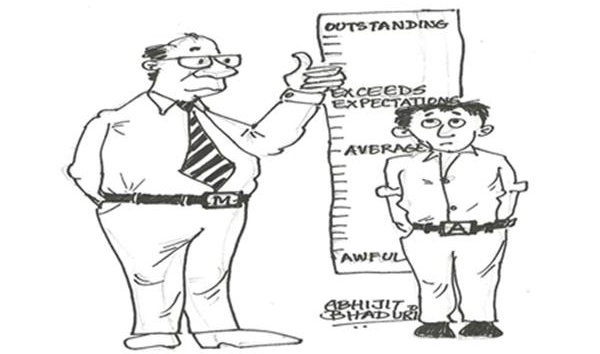Managing employee performance is one of the key elements for organizational success in the present context of firms. As we know, all the firms are busy trying to adapt to a resource centered view.
As we have been mentioning throughout, firms in the service sector that lay a lot of emphasis on people need to consider that employee performance is managed in a holistic manner.

Effective Performance Management and Appraisal
Let us take a look at the effectiveness of performance management and appraisal with the following points −
A Two-Way Street
Talking about employee performance, we need to remember that it is a two-way process that ties the manager and the employee with the HR manager playing the role of a mediator.
For instance, any conversation about employee performance has to include the manager and the employee or the manager and the managed. Thus, it is imperative that both parties to this transaction understand their responsibilities and work together to ensure that the process is smoothened.
The Role of the Manager
The manager has a duty to make sure that his or her management of the employees is free of biases and prejudices. Across companies and verticals where the employees feel discriminated against, it has led to attrition, lower employee morale and in the extreme cases, lawsuits against the company.
Thus, the manager has to walk the talk and not just pay lip service to the company’s policies on employee performance. During the course of working together as a team, there are bound to be instances where conversation between the manager and the team and within the team manifests itself.
It is incumbent upon the manager to make sure that such instances do not morph into a corrosive effect that threatens the very existence of the team as well as degrades the performance of the team as a whole.
The Role of the Employee
Just as the manager has a responsibility to manage the team effectively, so does the employees have corresponding responsibilities.
Absenteeism, shirking work, a negative attitude and an indifferent attitude towards work are some things that the employee must avoid. It is better for the employee to know that once he or she is categorized as having an attitude problem, then it would be difficult for the employee to break the perception and perform effectively.
This does not mean that the employee has to accept whatever comes his or her way silently. The point here is that the employee must use the channels available for redressal rather than sulking at work if he or she has grievances about the manager.
Organizational Focus
Though the role of the HR manager and the organization seems to be relatively small, it is a fact that organizational goals and culture play a very important part in ensuring that employee performance is managed for the benefit of the organization.
We have seen the centrality of managing employee performance to the progress of the organization. Here it should be noted that there are fair chances that the centrality leads to degrading the progress, if not properly checked.
If organizations want to minimize attrition and boost sagging employee morale, the first thing they can do is to make sure that the employee performance management system is streamlined.
Performance Appraisal Process
The performance appraisal process, simply put, is that time of the year when the employees are examined on their performance during the last six months or one year depending upon the timeframe that is set for the same.

The performance appraisal process is conducted between the employee and his or her manager for the first round and then between the manager and the manager’s manager before going into the third round. The third round includes the above people as well as the HR manager but excludes the employee.
Managing employee performance within a larger framework of organizational goals is critical for organizations that count people as their key assets but still, it can be done efficiently as discussed above.




